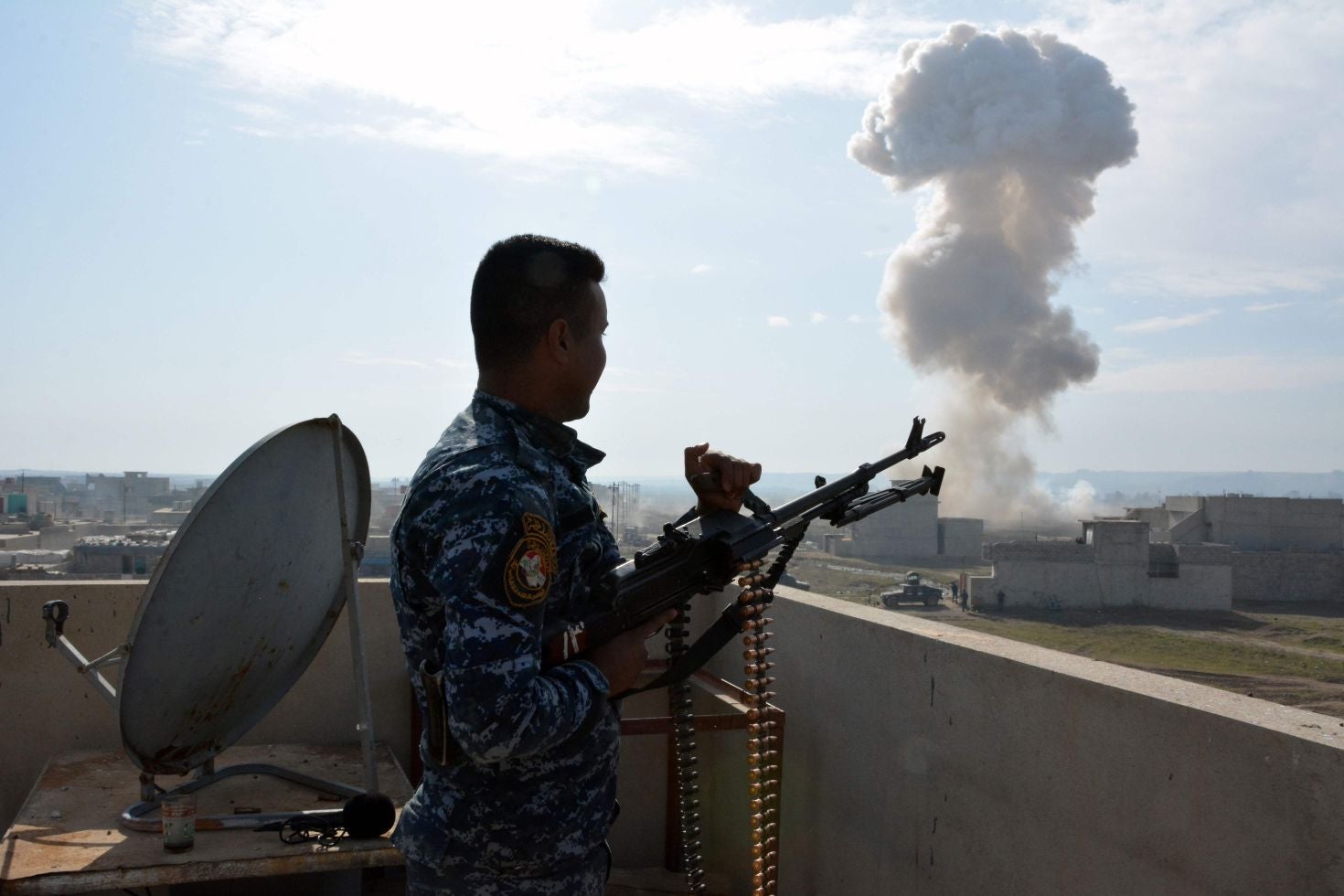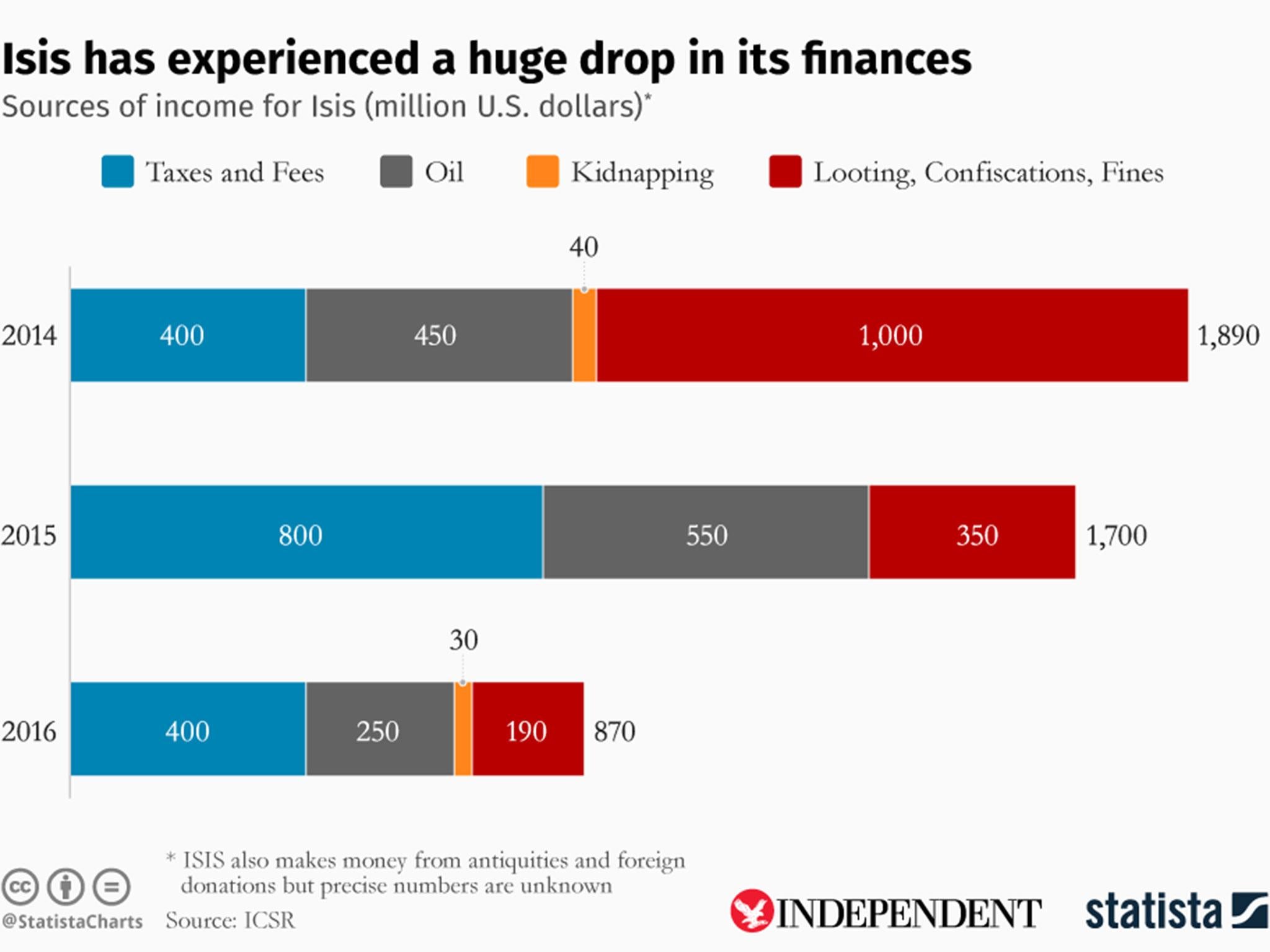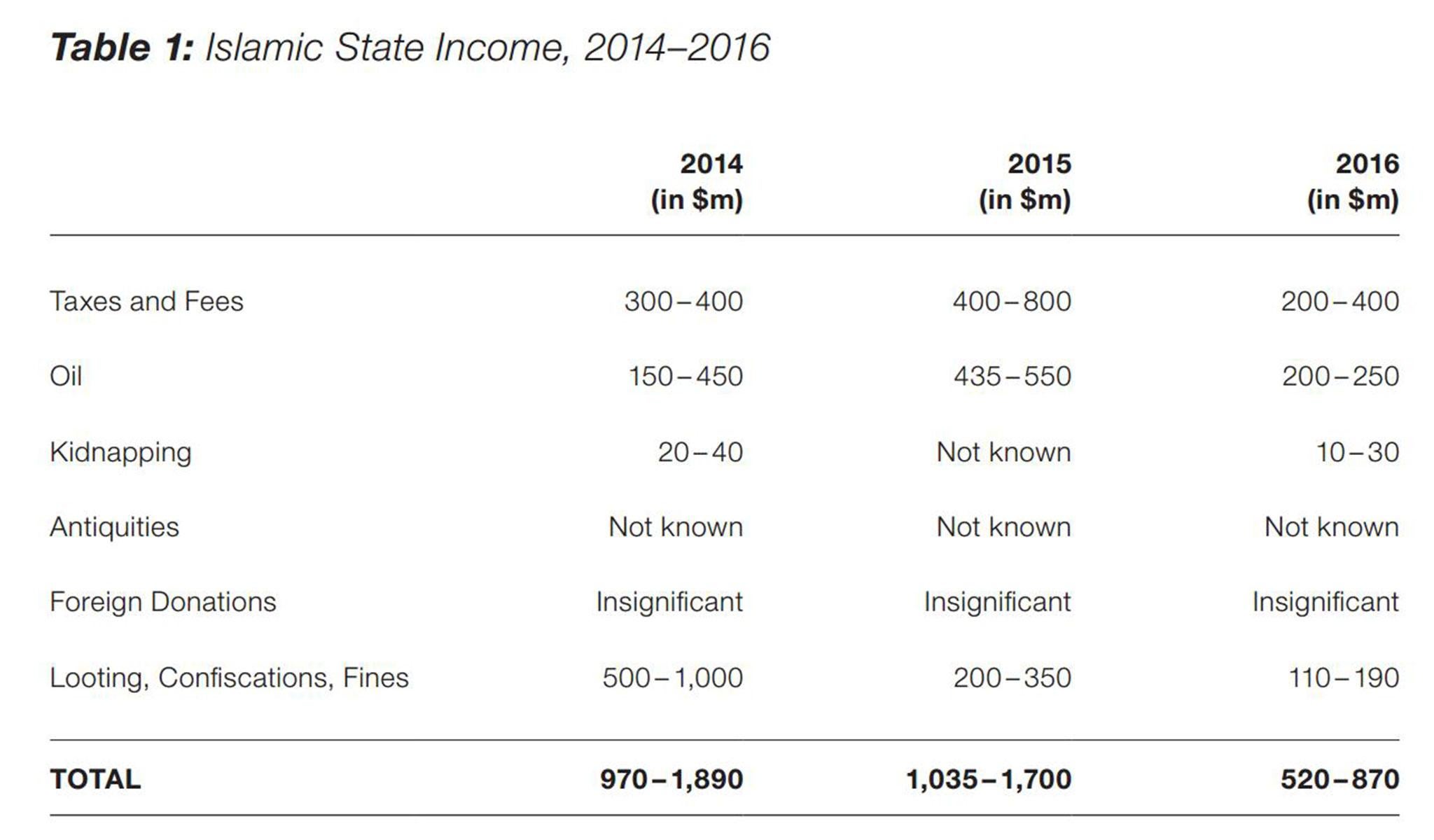Isis’ ‘business model’ failing as group haemorrhages millions while losing territory across Syria and Iraq
Report finds terrorists’ revenue streams drying up as international air strikes target oil

Your support helps us to tell the story
From reproductive rights to climate change to Big Tech, The Independent is on the ground when the story is developing. Whether it's investigating the financials of Elon Musk's pro-Trump PAC or producing our latest documentary, 'The A Word', which shines a light on the American women fighting for reproductive rights, we know how important it is to parse out the facts from the messaging.
At such a critical moment in US history, we need reporters on the ground. Your donation allows us to keep sending journalists to speak to both sides of the story.
The Independent is trusted by Americans across the entire political spectrum. And unlike many other quality news outlets, we choose not to lock Americans out of our reporting and analysis with paywalls. We believe quality journalism should be available to everyone, paid for by those who can afford it.
Your support makes all the difference.Isis’ “business model” is failing as jihadis lose their grip on territory and the vital oil and tax revenue it brings, a new report has found.
The so-called Islamic State is believed to be the richest terrorist group in the world, exploiting natural resources and looting antiquities seized in its lightning advance across Syria and Iraqi in 2014.
Civilians trapped under the militant group’s brutal rule are subjected to punitive taxation, confiscations and fines, while millions of pounds are made in ransoms from kidnappings.

But research by the International Centre for the Study of Radicalisation and Political Violence (ICSR) at King’s College London has found that Isis’ revenue streams are starting to dry up as the group loses territory and international air strikes target its oil fields.
The group’s true wealth is difficult to determine, but its annual revenue has plummeted from an estimated $1.9bn (£1.5bn) in 2014 to $870m last year.
Peter Neumann, director of ICSR said that while the exploitation of vast territories has been lucrative for Isis, the bureaucracy entailed brings expenses.
“It needs to fix roads,” he told the Associated Press. “It needs to pay teachers. It needs to run health services. It needs to pay for these things that al-Qaeda never had to.”
The report found no evidence that rumoured donations from foreign supporters and governments “continue to be significant”, while taxation has become Isis’ main revenue source after its ability to make money from looted antiquities in new territory faded.
Oil remains the group’s second-largest money-maker, but Isis’ trade has declined rapidly since the start of a targeted air campaign by the US-led coalition.
Operation Tidal Wave II, launched in October 2015, aims to destroy oil transport and infrastructure to cut the group’s funding, seeing oil wells and tankers repeatedly bombed despite concern for civilian workers.
On Thursday, US Central Command announced strikes that destroyed oil tankers, refinement stills and wellheads in Isis’ Syrian strongholds of Abu Kamal and Deir ez-Zor, while Russian strikes have also hit oil facilities.
The group has been forced to reduce salaries and perks for fighters, as well as increasing taxation and fees to make up the cash shortage, leaked documents from its Bayt Mal al-Muslimeen treasury show.
Estimated earnings from the looting and confiscation of artefacts from historical sites and abandoned homes across Isis territory is also on the decline.
A federal lawsuit filed in the US to recover four artefacts put up for sale by Isis showed it received at least 20 per cent of the proceeds of items excavated from archaeological sites under its control and taxed antiquities sold in its territories, even kidnapping a child to force one merchant to pay.

Isis’ coffers were also hit by the Iraqi government’s decision to stop paying salaries to government employees living in its territories in August 2015, and efforts to reduce cross-border smuggling with Turkey and Kurdish-controlled areas in Iraq.
Mr Neumann compared Isis’ funding strategy as a “pyramid scheme” requiring constant expansion, which has now been brought to a halt.
“The business model was also to constantly expand and to plunder the areas that were becoming part of the caliphate,” he said.
Britain and other allies are training thousands of troops to fight Isis on the ground in Iraq and supporting the predominantly Kurdish Syrian Democratic Forces alliance over the border.
Ground operations, backed by international air power, have seen Isis driven out of key strongholds including Fallujah, Tikrit and Jarablus, with militants currently battling to hold Mosul as enemies close in on their de facto capital of Raqqa.
By November last year, the group had lost 62 per cent of its mid-2014 “peak” territory in Iraq and 30 per cent in Syria, according to coalition figures, leaving it fewer civilians and businesses to tax and less control over natural resources.
The trend looks set to continue but the ICSR report, written in conjunction with the EY organisation, cautioned that the financial losses do not necessarily make the group less of an international threat.
While Isis’ Paris attack – their deadliest in Europe – was centrally organised and commissioned in Syria, the Nice lorry massacre and countless other atrocities were conducted by supporters at no cost to jihadi leaders.
In bombing attacks Isis favours triacetone triperoxide (TATP), an explosive that can be cheaply made following instructions issued in the group’s propaganda from readily and legally available products found worldwide.
Almost daily bombings in Baghdad and recent atrocities in Pakistan, as well as numerous plots uncovered in Europe, demonstrate Isis’ continued ability to inflict bloodshed and carnage.
“The decline in revenues may not have an immediate effect on the group’s ability to carry out terrorist attacks outside its territory,” the report cautioned.
“While hurting Islamic State finances puts pressure on the organisation and its state-building project, wider efforts will continue to be necessary to ultimately defeat it.”
Join our commenting forum
Join thought-provoking conversations, follow other Independent readers and see their replies
Comments